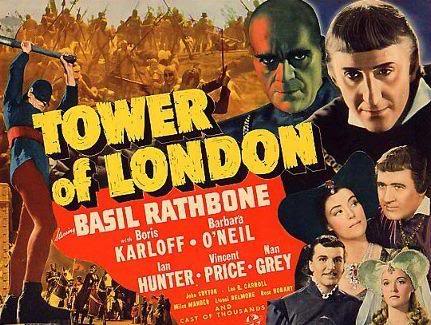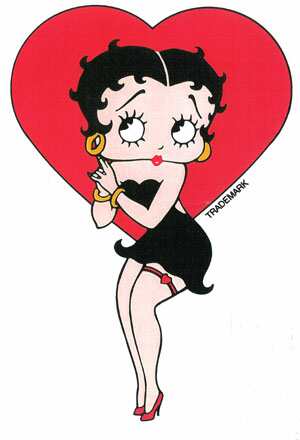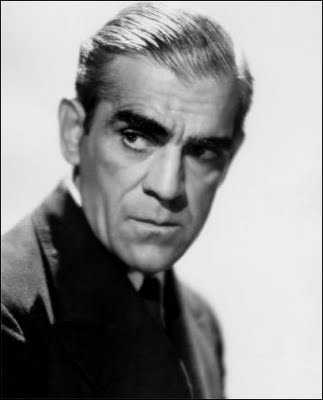Dolly Chugg and the Executioner
“Being the true account of an afternoon in Mumbles, long ago, when numerous inhabitants were subjected to a moment of sheer terror”.
Written by Grafton Maggs
The original, much loved, Tivoli Cinema (better known as “The Old”), was little more than a single storey, tin roofed box, fronted by a picturesque Edwardian verandah of considerable charm.
It differed little, in purpose, to its modern counterpart, in that, people went there to escape to a different world for a few hours, to unwind, to be entertained and, during those hard days between the wars, to escape from the worries of everyday life. And believe me! They knew what worry was!
 One entered a small foyer to be faced by the decorative, and pristine, Miss Foy who, regally situated in her cubicle, looking rather like a grand altar. One paid her, took the ticket which she had ripped off a roll, and went to the centrally sited door. The ticket was handed to the attendant and admission to the auditorium granted. One entered a small foyer to be faced by the decorative, and pristine, Miss Foy who, regally situated in her cubicle, looking rather like a grand altar. One paid her, took the ticket which she had ripped off a roll, and went to the centrally sited door. The ticket was handed to the attendant and admission to the auditorium granted.
Pillar Box Hats
Once inside, Dolly Chugg and Olive Kostromin, neatly clad in green uniforms with matching pillbox hats, took charge and directed patrons, rather vaguely to their seats, usually with a prolific interchange of badinage, and an occasional clack on the head from a torch. The entry situation is of some relevance to the rest of the story. Due to its central position, if the door was opened after the performance had started, the light from the road outside would shine directly upon the screen and interfere with definition. Therefore, after the performance started, Dolly Chugg would draw a curtain suspended from a heavy metal rail which was held in position by two uprights, immediately behind the back row. People could still come and go through the door but the curtain prevented interference by the light.
So, to mid December in the early 1930s, to a Saturday matinee, on a wet drizzly, mist-enshrouded Mumbles Head, sort of afternoon. The lighthouse blinked and the foghorn sent its muffled moan across the bay, echoing back into the early-darkening streets of the village.
This was a very special afternoon!
As a treat for the children, because Christmas was only a fortnight away, Mr Merrils had arranged the showing of a “very creepy film”. In response to this kind gesture, loyal young patrons of “The Old” turned up in their hundreds, ready and eager to pay their thruppenny bits for the privilege of being terrified by:
Mr. Boris Karloff
in the title role of:
"The Executioner”!!
in the film The Tower of London

The Cinema was scheduled to open at 1.45pm and the show to start at 2.00. To say the least, it was to be an eventful afternoon!
Before the All Saints Church bell had rung four o’clock on that Saturday afternoon, the well- intentioned, Mr. Merrils was to rue his decision in showing that particular film, although, in fairness to him, the precipitant factor was not of his making.
The queue straggled from the front of the cinema, past Kemp’s the Outfitters (“London and Paris Fashions our Speciality”), past the Post Office, to Lowther’s the Chemists, on the corner. Shrill young voices cut through the damp air, bodies gyrated, shoved and pushed, moans and strangled groans rent the air as the more imaginative anticipated the gory enactments to come.
Noisy fun and laughter
Adults were privileged on Saturday afternoons, and approached the cinema entrance from the tennis court side, bypassing the queue, to go straight to Miss Foy. Quite a few older members of the village community liked to attend the children’s matinee, revelling in the atmosphere of noisy fun and laughter to which they, a generation ago, had contributed in that same old cinema. Amongst them was one regular, an aged widow, Old Mrs. Thomas. She always sat in the same end seat of the same row, near the front. This was her seat and a stranger might have been puzzled by the sight of the adjoining seat and the ones immediately to her front and back, always being unoccupied, even when the rest of the cinema was packed. There was a simple reason for this. This much loved and very old lady was of an emotional nature and would become so totally involved in the happenings on the screen that in moments of extreme terror, passionate love, shoot-outs, cliff hanging, and the like, she would react in dramatic fashion. She would have a “little accident”.
This was accepted and catered for, with great sympathy, by the management.
By 2.00, Dolly and Olive, with infinite patience and a few bruised heads, had shepherded the teeming, sweet chewing, sherbet stained, gob stoppered, brawl into the “thrupennies”. The overflow, (such was the attendance) was corralled in the sixpennies. This was cause for another interchange of coarse ribaldry between the masses occupying these different categories.
Roley Thomas swaggered down the aisle
At five minutes past two, Roley Thomas swaggered down the aisle and mounted the stage, to laboriously pull on the grubby rope which elevated a safety screen in front of the screen proper. Each pull was encouraged with a, “Heave! Heave! Heave!”, from the restive front rows. The rope was securely tied to a hook on the side of the stage and Roley jumped down to the auditorium. On his way back, en passant, he slapped a few shaven heads of the more vociferous, adjacent to the aisle.
Then, the lights suddenly went out (there was no subtle dimming in those days), bringing forth the customary shouting and cheers from the expectant, charged up horde.
A slide then appeared on the screen, a message scratched on a sheet of smoked glass. Unfortunately, it was upside down and was greeted with jeers, whistles, cat calls and very personal derogatory remarks about the operator.
It was corrected and read:
“The Management Wish the Patrons of the Tivoli Cinema, a Very Merry Christmas and a Prosperous and Happy New Year!”
This again was responded to by the wits in the audience:
“Same to you Mr. Merrils!”
“And you, Mrs Merrils”
“And all the little Merrils!”
“And your Grandma, Mr. Merrils!”
“And your dog, Mr. Merrils!”etc.
Fortunately, soon brought to a close by the flickering montage of the Gaumont British News.
The performance proper had begun.

There were the usual preliminaries viz, a minor feature film, supported by a Betty Boop cartoon, a Laurel and Hardy short, Coming Attractions and then in glorious stark, black and white, came the flickering name of:
Boris Karloff
“The Executioner”

The music backing the opening credits must surely have been recorded by the massed philharmonics of five continents. The wailing of violin, the mournful French horn, and the booming crash of the tympanists, reverberated through the auditorium, striking apprehension into every heart, conveying a sense of the terror that prevailed in medieval times.
And that was just the start!
The plot centred on the activities of a gentleman, named “Mord” who, during the reign of Henry VIII, was the chief executioner in the Tower of London. He was responsible for despatching those citizens unfortunate enough to have incurred the displeasure of the establishment, ie the King and his cronies. Mord occupied a stone walled room in the Tower, and, neatly stacked in racks about him was a selection of axes. Now, these were no ordinary axes such as one sees these days in Cash Hardware Store and used to chop up a log. Dear me, no! These 12.jpg) had polished wooden handles about six foot long with gleaming metal heads shaped in exotic style with a pointy thing on the back. They looked as if they weighed a ton each. They were designed, and specifically used, for chopping off heads which accounts for the fact that they are rarely seen today in such outlets as Tesco, because the demand has fallen off somewhat. Otherwise Tesco, if true to form, would be retailing them, “buy one get one free”. had polished wooden handles about six foot long with gleaming metal heads shaped in exotic style with a pointy thing on the back. They looked as if they weighed a ton each. They were designed, and specifically used, for chopping off heads which accounts for the fact that they are rarely seen today in such outlets as Tesco, because the demand has fallen off somewhat. Otherwise Tesco, if true to form, would be retailing them, “buy one get one free”.
Axes from the rack
 1.jpg)
The film, Tower of London, started with Mord, (played by Boris Karloff), taking down one of the axes from the rack. With his strength he handled it with all the ease of a bishop fitting his mitre. The camera panned to a close-up of Mord’s face with its heavily lidded eyes. He stroked the blade and as he felt its edge a half smile slowly developed. His eyes narrowed. Mord was happy. Today he had work to do.
The scene changed, to a long gloomy stone corridor leading from Mord’s habitat to a row of dungeons. Miserably incarcerated in dripping filthy cells, which obviously had damp course problems, were unwashed shivering miscreants waiting for the call to take them on the last walk to the Block.
The camera continued to the end of the corridor, through a gigantic portcullis to a large open area fronting the Tower. Here, in the middle stood a platform carrying the Block and was surrounded by hordes of cheering London folk, most of them the worse for drink and revelling in the party atmosphere of an execution day, not unlike a present day Saturday night in Wind Street, Swansea.
Mord wet his forefinger
Then back to Mord’s boudoir. Mord had not been wasting his time. With his good foot he operated a treadle which propelled the sharpening stone, now in contact with the head of his axe. Sparks flew. Mord wet his forefinger and gently stroked the cutting edge of the blade.
He was satisfied. He was ready.
He reached up to a hook and pulled off a black hood. He rose and carefully pulled this over his head and shoulders slowly turning to face the audience. Only his black glittering eyes were visible through the holes in this evil looking cowl.
He looked out into the auditorium at each and every one of us!
There were gasps and the odd whimper from the thruppennies. Jackie Timothy covered his face with his cap. Mord shouldered the axe, kicked open the door and waited for “the call.” The music again swelled and the mournful French horns moaned with misery and foreboding in a haunting minor key.
Then came “the call” from the portcullis,
“Send for Mord!”
This was carried on by word of mouth, echoing down the long gloomy passage,
“Send for Mord!”
“Send for Mord!””
“Send for Mord!”
It reached Mord!
He stepped forward on to his left leg and it was now revealed that Mord had a deformed right leg with a club foot, encased in a heavy leather studded boot.
Mord was only able to drag this deformed foot up to the sound one and, handicapped as such, laboriously, made his way down the passage to the cells. There was a resounding “Thud!” as he stamped forward on to his good foot followed, after a short pause, by the long, scraping sound of the studded boot dragging over the stone pavement.
The wretched inmates of the cells had already heard the call for Mord and were suddenly made aware that one of them (they knew not whom) was to be taken to the Block. They waited, trembling with fear and perhaps the reader can appreciate how they felt if they liken the situation to the present day BBC’s, “Come Dancing”. Here, couples have to line up and endure an agonising wait as a decision is announced, as to who is going to get the chop.
So tension built up.
The crashing thud and then the echoing drag of Mord’s deformed leg as he approached the cells mesmerised the audience. Fleeting glimpses were given of the terrified faces of the prisoners as they heard his approach. Who would it be?
Mord reached the cell doors.
There was silence for a few moments and then suddenly, Mord lashed out his left leg at the selected cell door which crashed open and allowed what little light there was, to fall upon the filthy face of the petrified prisoner who began to screeeeeaaamam!
It was now that things began to go wrong in the real world!
Dolly Chugg, like her charges, was totally involved in the film, she steadied herself by resting her arm upwards on to that curtain rail previously described. As the cell door crashed upon she unthinkingly pulled down on this ancient curtain hanger.
It gave way!
Simultaneously with the cell door crashing open, forty feet of metal rail came thundering down behind the back seats with all the noise of a steam roller dropping off a cliff! For a fraction of a second there was no reaction and THEN!
It was bedlam!
Screaming from the females and yelling from the males. To compound things, “Vinegar” Trailor leapt to his feet and yelled at the top of his voice,
“It’s Mord!! He’s here in the cinema!!”
That did not help things one little bit.
Nearly everyone leapt to his or her feet and there was uproar as the scramble began to reach the aisles. It is at times such as these that people of special quality are brought to the fore. Mr.Merrills, never far away, reacted with commendable speed. He switched the lights on. The projectionist stopped the film. The pandemonium rapidly subsided.
Within minutes, the situation was under control as staff scurried about checking the damage. All the screaming had stopped and was replaced by a hubbub of excited chatter and lying boasts.
The privilege of knowing what Mord got up to on that day was never revealed to a Mumbles audience. Mr. Merrills, wisely put on another film with a Christmassy tale and personally attended to the minor wounds inflicted.
A Nine Day Wonder
Being Mumbles, this incident became a nine day much exaggerated wonder. It built up in content and by the end of the week people were saying that on that fateful Saturday in the Old Cinema, there had been three heart attacks, two strokes, two epileptic fits and four broken arms.
But! What was the true cost?
Freddie Grace and Tiddy Talbot cut their knees, Walter Meyrick hurt his wrist, Kenny Bale had a bleeding nose, Bertie Claypitt banged his head, Stanley Baglow ripped his trousers, Roy Ace twisted his ankle and Lorna Rees fainted (or pretended to). And everyone had had the living daylights scared out of them. It was soon pushed back into the dreamworld of memories by the imminence of Christmas. The Celebration of Christ’s Birth was simpler, and yet more profound, in those days and the preparations for it soon fully occupied young minds at the expense of “that Saturday afternoon in the Tiv’”.
To come, was all the joy of the end of term school concert, the little shopping trip to Swansea with Mum, making decorations, carol singing around the houses, the Wesleyan Junior Guild Services and the family Christmas Dinner.
Cuts healed and bruises vanished and Mumbles life went on.
Oh yes! I forgot to mention one other incident of that afternoon,
Old Mrs. Thomas “had a little accident”.
|